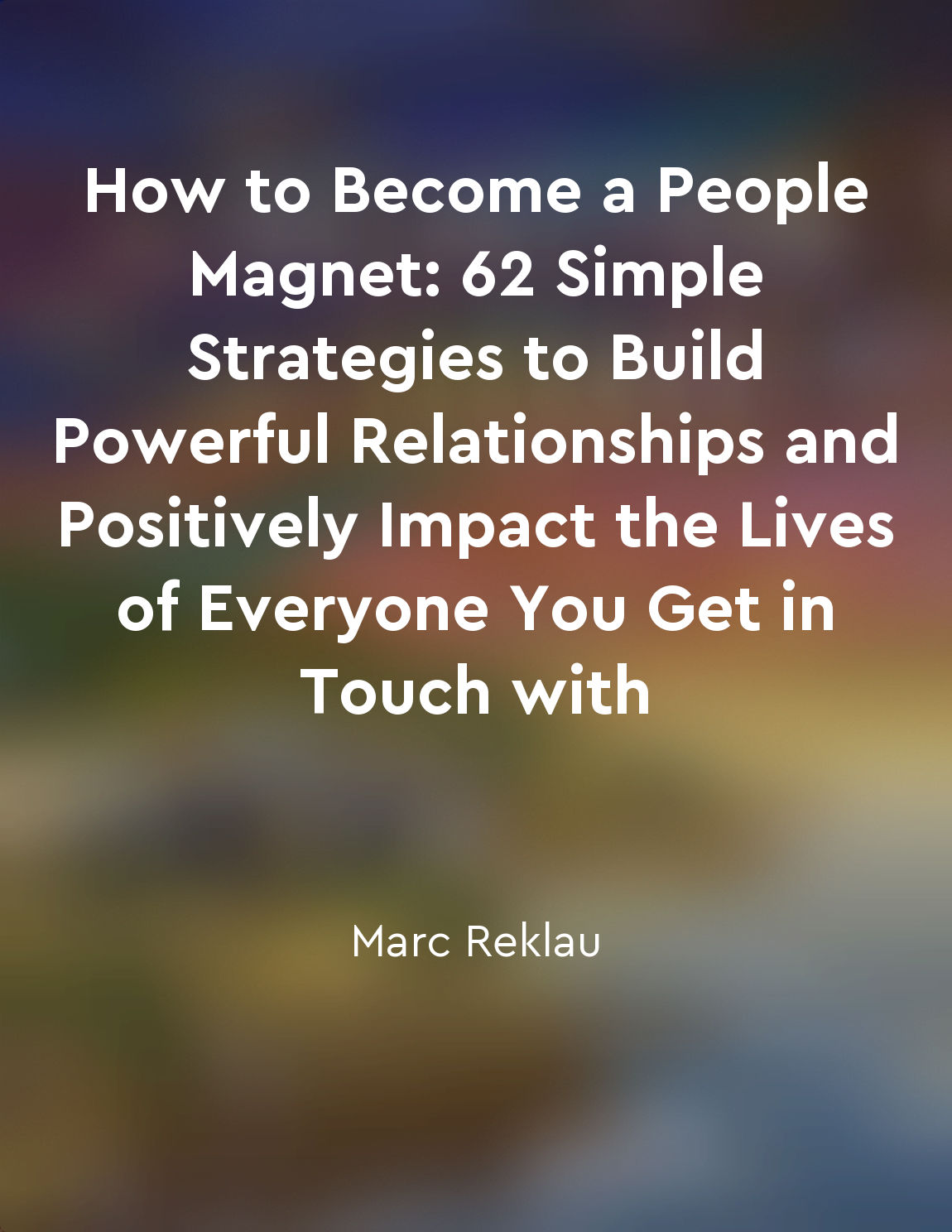Ask openended questions from "summary" of The Lost Art of Listening by Michael P. Nichols
When engaging in a conversation, it is important to ask questions that allow the other person to express themselves fully. Open-ended questions are a powerful tool in this regard. These questions cannot be answered with a simple "yes" or "no," but instead require the speaker to provide more detailed responses. By asking open-ended questions, you are encouraging the other person to share their thoughts, feelings, and experiences in a deeper and more meaningful way. Open-ended questions are particularly valuable when trying to gain insight into someone's emotions or perspectives. For example, instead of asking, "Did you have a good day?" you could ask, "Tell me about your day. What was the highlight for you?" This second question invites the other person to elaborate on their experiences and provides you with a better understanding of how they are feeling. In addition to encouraging deeper self-expression, open-ended questions can also help to foster a sense of connection and rapport between individuals. When you ask someone to share their thoughts and feelings with you, you are demonstrating a genuine interest in their perspective. This can help to build trust and strengthen your relationship with the other person. However, it is important to use open-ended questions judiciously. Asking too many open-ended questions in rapid succession can feel overwhelming to the other person and may come across as intrusive. It is important to strike a balance between asking open-ended questions and allowing the other person space to share at their own pace. In summary, asking open-ended questions is a valuable skill that can enhance communication and deepen relationships. By using these questions effectively, you can encourage others to express themselves fully, gain insight into their emotions and perspectives, and build stronger connections with them.Similar Posts
Practice assertiveness in conversations
When we practice assertiveness in conversations, we are expressing ourselves confidently and standing up for our own needs and ...
Learn to forgive
Forgiving someone is not easy, especially when we have been hurt or wronged. It requires a conscious decision to let go of rese...
Reflect on your own biases and be open to new perspectives
It is crucial to take a step back and examine our own biases before engaging in meaningful conversations with others. Our biase...

Avoid interrupting when someone is talking
Learn the importance of letting others speak without interrupting in conversations. It is essential to give them the chance to ...
Use humor to lighten the mood
Humor has a unique way of breaking tension and making people feel more at ease. When conversations become tense or emotions run...

Technology has made it easier to ignore true listening
In a world where technology reigns supreme, it is becoming increasingly common for people to prioritize screens over faces, tex...
Communication is a complex process
Communication is not as simple as it may seem at first glance. It involves a multitude of elements that come together to create...

Be supportive and understanding
Being supportive and understanding is crucial when building powerful relationships and positively impacting the lives of those ...
Listening is a lost art in today's fastpaced world
In today's fast-paced world, the act of truly listening has become a rare and undervalued skill. People are constantly bombarde...
Establish boundaries in conversation
To make sure you maintain control of your conversations, set boundaries. If someone tries to convince you to do something you d...
